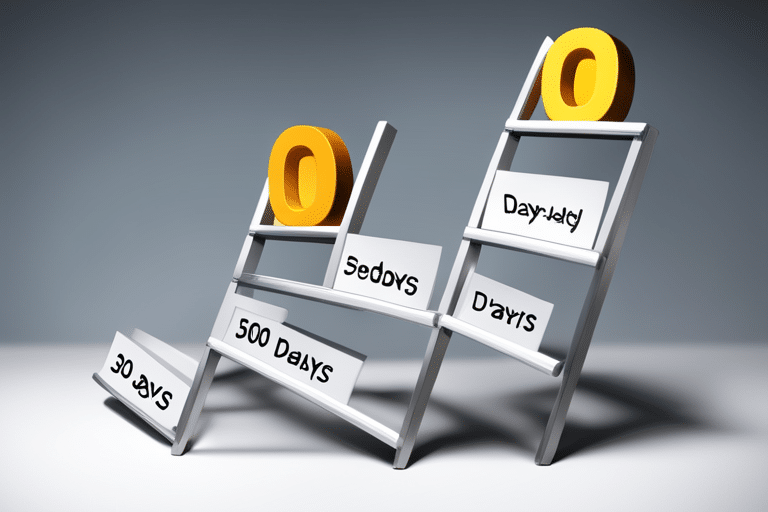Hey there, credit score master! Ready to take control of your financial destiny?
In just 30, 60, or 90 days, you can skyrocket your credit score and unlock a world of possibilities.
It may sound like a daunting task, but fear not! With a little bit of know-how and some clever strategies up your sleeve, you’ll be on your way to credit greatness in no time.
So grab a seat and get ready to dive into the secrets of improving your credit score like a boss. Let’s do this!
Key Takeaways
- Paying bills on time and keeping balances low can positively impact credit score.
- Disputing errors promptly is important before creating a budget and paying off debt.
- Prioritize debt repayment by focusing on high-interest debts first.
- Aim to keep credit utilization below 30% to maintain a healthy credit profile.
Understanding Your Current Credit Score

If you’re wondering how to improve your credit score in a short amount of time, it’s crucial to first understand your current credit score. After all, you can’t fix something if you don’t know what’s wrong with it, right?
Your credit score is like the report card for your financial responsibility. It’s a three-digit number that lenders use to determine whether or not they should lend you money. So, let’s dive into the nitty-gritty.
There are several factors that go into calculating your credit score. The main ones include payment history, amounts owed, length of credit history, new credit accounts, and types of credit used. Each factor carries a different weight when determining your overall score. For example, paying your bills on time and keeping balances low can have a positive impact on your credit score.
Now that you know about the factors that affect your credit score range (typically between 300 and 850), let’s talk about how to assess where you stand currently. You can obtain a copy of your credit report from each of the three major bureaus: Experian, TransUnion, and Equifax. Take some time to review these reports carefully and look for any errors or discrepancies. Even small mistakes can have a big impact on your overall score.
Understanding where you stand now is essential before moving forward with improving your credit score. Once we’ve covered assessing your credit report for errors, we’ll move onto some actionable steps you can take to start boosting that number!
Assessing Your Credit Report for Errors
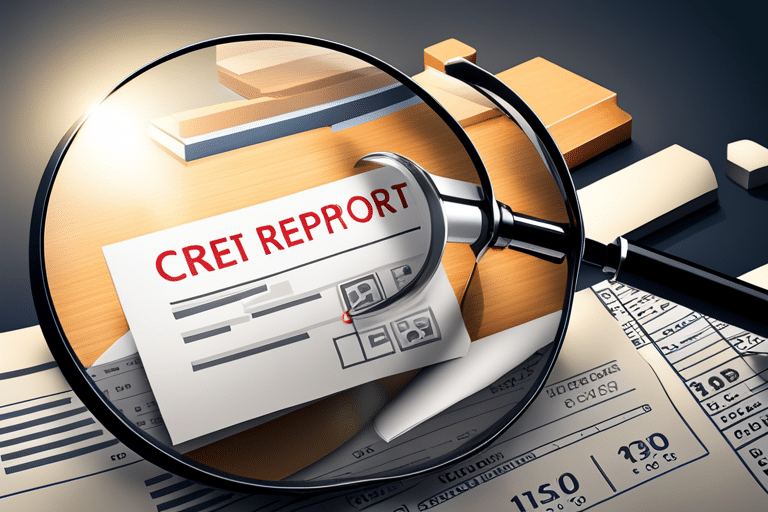
To identify any errors, take a close look at your credit report. Now, I know what you’re thinking – looking at your credit report doesn’t exactly sound like the most thrilling activity in the world. But trust me, this is an important step in improving your credit score. Think of it as a treasure hunt for financial freedom!
When analyzing your credit report, keep an eye out for any inaccuracies or discrepancies. These can range from outdated personal information to incorrect payment histories. It’s essential to dispute these errors promptly because they could be dragging down your credit score without you even realizing it.
Now, I won’t lie to you – disputing inaccuracies can sometimes feel like navigating through a maze with blindfolds on. But fear not! There are resources available to guide you through the process. You can contact the credit reporting agencies directly or use online platforms that specialize in helping consumers analyze and dispute their credit reports.
Once you’ve identified and disputed any errors, it’s time to move on to creating a budget and paying off debt. This next step is crucial because it shows lenders that you’re responsible with your finances and actively working towards improving your creditworthiness.
Creating a Budget and Paying Off Debt

Now that you’ve identified and disputed any errors on your credit report, it’s time to dive into creating a budget and tackling that debt head-on. Don’t worry, I’ve got some unconventional tips to help you along the way.
-
Set Clear Financial Goals: Write down exactly what you want to achieve financially. Do you dream of being debt-free? Want to save for a vacation? Be specific and make those goals measurable.
-
Prioritize Debt Repayment: Take a look at all your debts and figure out which ones have the highest interest rates. Focus on paying off those first while making minimum payments on the rest. It’s like fighting fire with fire!
-
Track Your Spending: Use an app or spreadsheet to keep track of every penny you spend. This will help identify areas where you can cut back and save more money.
-
Get Creative with Saving Money: Have fun finding creative ways to save money! Cancel unnecessary subscriptions, shop thrift stores for clothes, and pack your own lunch instead of eating out. Every little bit adds up!
-
Reward Yourself Along the Way: Celebrate small wins along the way to keep yourself motivated. Treat yourself to something small when you reach certain financial milestones – just remember not to go overboard!
Building a Positive Payment History

Building a positive payment history is crucial for establishing good credit and improving your financial standing. When it comes to improving creditworthiness, making timely payments is key. But how can you ensure that you’re on the right track? Let’s delve into some unconventional strategies that will help you establish credit and boost your overall financial health.
| Strategy | Action | Outcome |
|---|---|---|
| Pay on time | Set up automatic payments or reminders to ensure you never miss a due date | Avoid late fees and negative marks on your credit report |
| Diversify your credit mix | Consider different types of credit, such as credit cards, loans, or lines of credit | Show lenders that you can handle various forms of debt responsibly |
| Keep balances low | Aim to keep your debt utilization ratio below 30% by paying off high-interest debts first | Reduce the amount of money owed in relation to your available credit |
By following these strategies, you’ll be well on your way to establishing a solid payment history and improving your overall creditworthiness. But remember, building good credit takes time and patience. It won’t happen overnight, but with consistent effort, you’ll start seeing positive results.
Now that you have a strong foundation in place with a positive payment history, let’s explore how utilizing effective credit utilization strategies can further enhance your financial profile.
Utilizing Credit Utilization Strategies
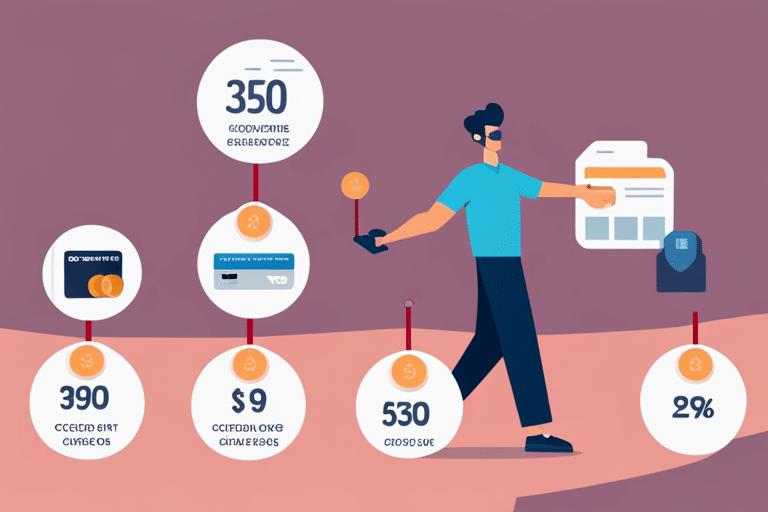
By diversifying your credit mix and keeping balances low, you can effectively utilize credit utilization strategies to improve your financial profile. Credit utilization refers to the percentage of your available credit that you are currently using. It plays a significant role in determining your credit score, so it’s essential to make the most of it.
Here are five ways credit utilization benefits you and how you can optimize your credit limits:
-
Boost your credit score: When you keep your balances low, it shows lenders that you are responsible with your credit. This can lead to an increase in your credit score over time.
-
Increase borrowing power: By demonstrating good credit utilization, lenders may be more willing to extend higher lines of credit to you. This gives you greater flexibility when it comes to borrowing money.
-
Lower interest rates: Maintaining a low balance on your cards can result in lower interest rates if you need to take out a loan or finance a purchase. Lenders see this as less risk and reward borrowers with better terms.
-
Improve chances of approval: When applying for loans or new lines of credits, having a low utilization rate increases the likelihood of being approved since it shows that you are not relying too heavily on borrowed funds.
-
Enhance financial stability: By managing your debt responsibly and keeping balances low, you are taking steps towards long-term financial stability. This can lead to improved overall financial well-being.
To optimize your credit limits, consider paying down high balances first, requesting limit increases from creditors, setting up automatic payments to avoid late fees, monitoring statements regularly for errors or fraudulent charges, and avoiding unnecessary new debts while focusing on paying off existing ones.
Managing Credit Inquiries and New Accounts
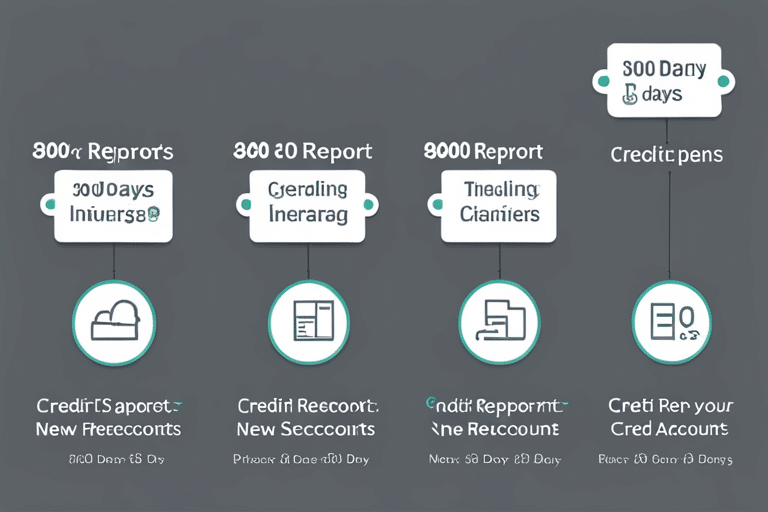
So, you’ve decided to dive into the world of credit inquiries and new accounts, huh? Well, buckle up because things are about to get interesting!
We’ll be exploring the impact of those pesky credit inquiries on your score, as well as uncovering the secrets of timing when it comes to opening shiny new accounts.
Get ready for a wild ride filled with twists, turns, and hopefully some valuable insights along the way!
Impact of Credit Inquiries
To minimize the impact of credit inquiries on your credit score, you should avoid applying for multiple loans or credit cards within a short period of time. We get it, sometimes you see that shiny new card with all its perks and rewards and it’s hard to resist. But trust us, too many credit inquiries can have a negative effect on your score. So take a deep breath and put that application down for now.
Here are some reasons why you should be cautious:
- Each inquiry can lower your score by a few points.
- Multiple inquiries can make lenders think you’re desperate for credit.
- Recent inquiries have a bigger impact than older ones.
- Inquiries stay on your report for two years.
- Soft inquiries (like checking your own credit) don’t affect your score.
Now that we’ve covered the impact of credit inquiries, let’s dive into the next topic: timing of new accounts.
Timing of New Accounts
When opening new accounts, it’s important to consider the timing and how it may impact your overall financial situation. Think of it like planting a garden – you wouldn’t want to sow seeds in the dead of winter, right?
Well, the same goes for new accounts. Timing matters! Opening multiple accounts at once can send alarm bells ringing for lenders and hurt your credit score. But don’t worry, there’s a silver lining!
If you space out your account openings strategically, you can actually boost your credit score over time. It shows lenders that you’re responsible and capable of managing different types of credit. So be patient, my friend. Rome wasn’t built in a day, and neither is a stellar credit score.
Plant those account seeds wisely and watch them grow into a flourishing financial future!
Monitoring Your Credit Score Progress
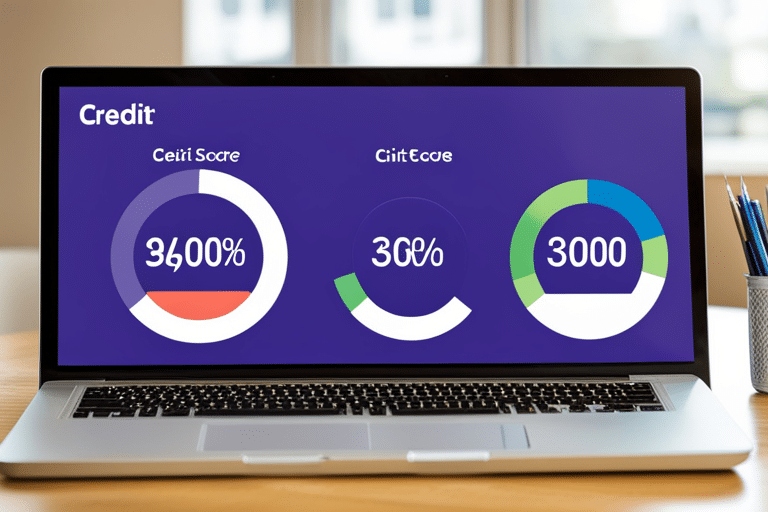
Keep an eye on your credit score regularly to track its progress. It’s like having a pet goldfish that you need to feed and keep healthy. Your credit score is not just a number, it’s a living, breathing entity that needs constant nurturing.
So let’s dive in and explore some creative ways to monitor your credit score progress.
-
Credit Score Apps: Download a snazzy credit score app that gives you real-time updates on your credit score. It’s like having a personal assistant who constantly whispers sweet nothings about your financial health into your ear.
-
Credit Score Alerts: Set up alerts so you get notified whenever there are changes in your credit report. It’s like having a secret agent who keeps tabs on any suspicious activity happening behind the scenes.
-
Credit Score Tracking Services: Enroll in a credit score tracking service that provides monthly reports and analysis of your credit score. Think of it as having your very own Sherlock Holmes solving the mystery of why your credit score went up or down.
-
Regular Credit Reports: Request free copies of your credit report from the three major bureaus annually and review them for any errors or discrepancies. It’s like being a detective, uncovering hidden clues to maintain the integrity of your financial reputation.
-
Identity Theft Protection: Invest in identity theft protection services that not only safeguard against fraud but also provide regular updates on changes to your credit file. It’s like having an armored superhero protecting you from the villains lurking in the shadows.
Remember, mastering the art of monitoring your credit score is crucial for maintaining financial well-being. So go forth and embrace these unconventional methods with gusto!
Your future self will thank you for taking care of that precious little goldfish called ‘credit score’.
Seeking Professional Help and Credit Counseling

Seeking professional help and credit counseling can provide valuable guidance in managing your financial situation. Let’s face it, dealing with debt can feel like climbing Mount Everest without any gear. It’s overwhelming, intimidating, and downright exhausting. But fear not! With the right professional guidance and credit counseling, you can conquer that mountain of debt and take control of your financial future.
Picture this: you’re sitting down with a knowledgeable credit counselor who is armed with all the tricks of the trade. They have extensive experience in debt management and are ready to share their wisdom with you. They’ll assess your current financial situation, create a personalized plan tailored to your needs, and guide you towards that light at the end of the tunnel.
Credit counselors are like financial superheroes, equipped with superpowers that can negotiate lower interest rates on your behalf or even set up a manageable payment plan with your creditors. They’ll teach you how to budget effectively, prioritize your debts, and ultimately regain control over your finances.
But let’s not forget about the emotional support they provide too. Dealing with debt can be incredibly stressful, but having someone by your side who understands what you’re going through can make all the difference. Credit counselors offer a listening ear and encouragement every step of the way.
Frequently Asked Questions
Can I Improve My Credit Score Without Paying off My Debt?
You can totally improve your credit score without paying off your debt! There are alternative ways to boost your credit, like making on-time payments and keeping your credit utilization low.
How Long Does It Take for a Late Payment to Affect My Credit Score?
Hey, you’re wondering how long it takes for a late payment to impact your credit score? Well, buckle up! A single late payment can actually lower your score pretty quickly. Don’t let it happen!
Will Closing Unused Credit Cards Improve My Credit Score?
Closing unused credit cards won’t necessarily improve your credit score. Having more credit cards doesn’t automatically mean a higher score. Focus on making timely payments and keeping your credit utilization low to see positive changes.
Can I Improve My Credit Score by Consistently Making Minimum Payments?
You might think that consistently making minimum payments will improve your credit score, but unfortunately, it’s not that simple. Improving your credit score requires more than just the bare minimum.
How Often Should I Check My Credit Report for Errors?
You should check your credit report regularly for errors. If you find any, dispute them right away. It can take some time to remove errors, but patience pays off. Keep an eye out for those pesky mistakes!
Conclusion
So there you have it! By following these tips and tricks, you can boost your credit score in just 30, 60, or 90 days.
Imagine this: Sarah had a credit score of 550 and desperately needed to improve it to secure a loan for her dream home. She diligently followed the steps outlined in this article and within three months, her credit score skyrocketed to 700!
With her newfound financial freedom, Sarah was able to move into the house of her dreams.
So go ahead, take control of your credit score and watch your financial possibilities unfold!

